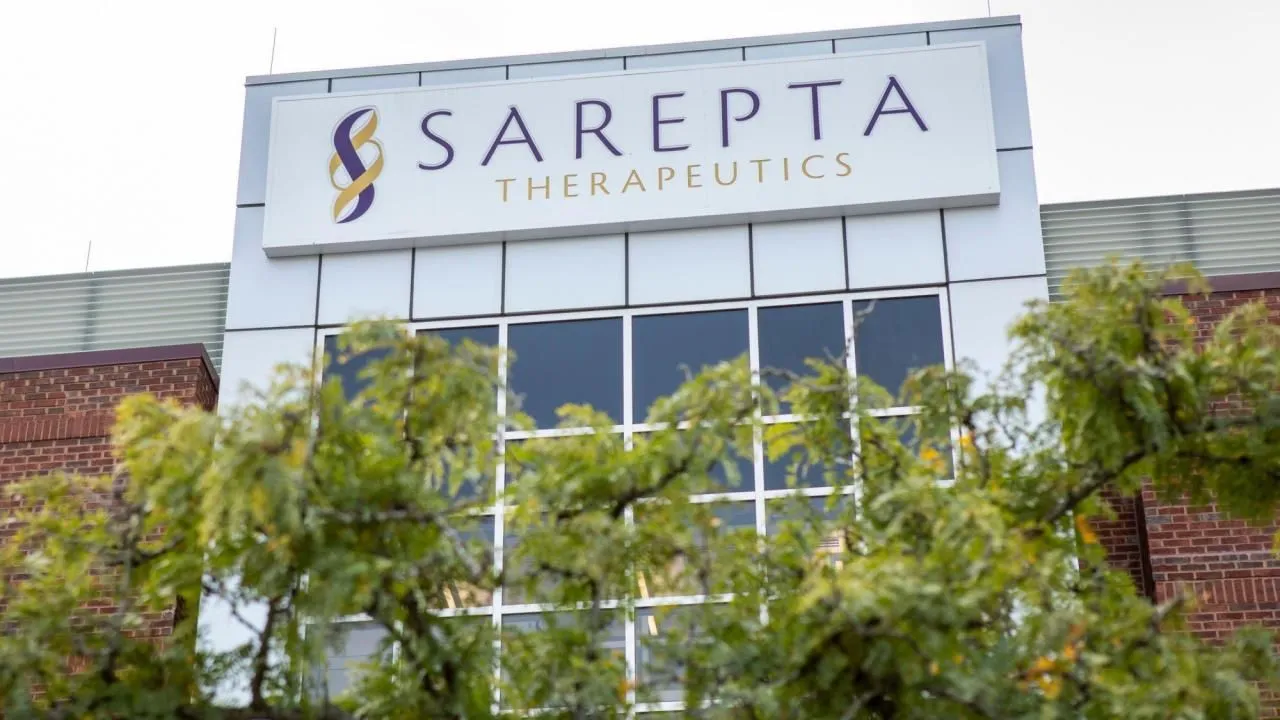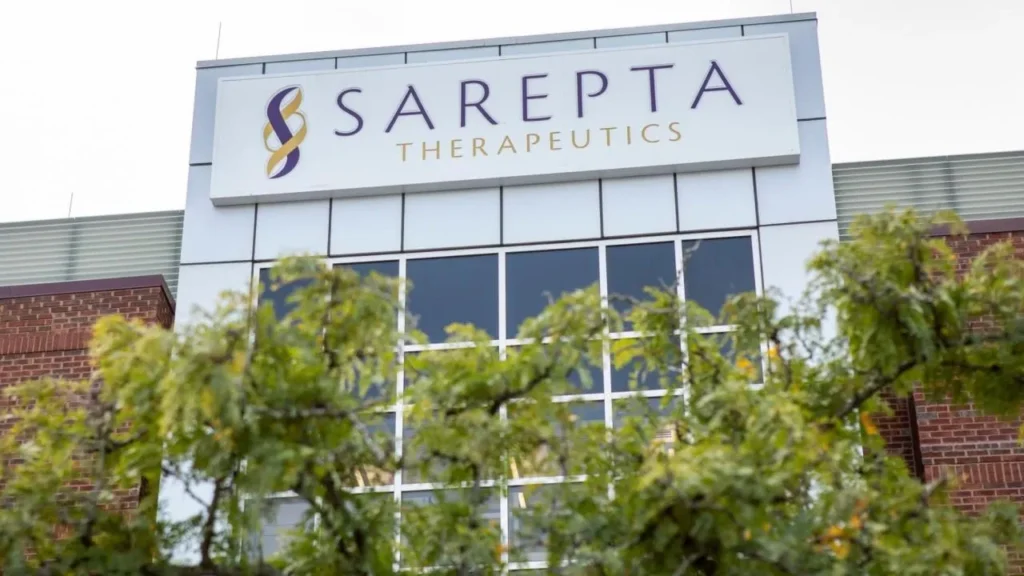
Sarepta Therapeutics Responds to FDA’s Voluntary Halt Request for ELEVIDYS Shipments and Clarifies Gene Therapy Safety Concerns
Sarepta Therapeutics, Inc. (NASDAQ: SRPT), a leading biotechnology company at the forefront of developing precision genetic medicines for rare neuromuscular diseases, issued a detailed public statement today following an informal request from the U.S. Food and Drug Administration (FDA) to voluntarily pause shipments of its approved gene therapy, ELEVIDYS (delandistrogene moxeparvovec), in the United States.
The FDA’s request was made shortly after 2:30 p.m. ET, and according to Sarepta, it came as a surprise to the company. Sarepta stated that it first became aware that such a request might be forthcoming at the same time the general public and Duchenne muscular dystrophy (DMD) patient advocacy groups did—through media reports earlier in the day. The unexpected nature of the request underscores the complexity and sensitivity surrounding emerging gene therapies, especially those targeting devastating and life-limiting conditions like Duchenne.
Commitment to Safety Drives Immediate Action
In response to the FDA’s request, Sarepta emphasized its unwavering commitment to patient safety, stating that it has voluntarily halted shipments of ELEVIDYS for non-ambulant patients as a precautionary measure. This conservative decision, the company noted, is in line with its guiding principle of placing patient welfare above all else. It also reflects Sarepta’s intention to work proactively with regulatory authorities to align on safety protocols and labeling updates.
According to Sarepta Therapeutics, the halt specifically impacts the use of ELEVIDYS in non-ambulatory patients. The company has already been working with the FDA to revise the product’s label and explore the potential benefits of using a more aggressive immunosuppressive regimen. This new approach could help mitigate the risk of acute liver failure (ALF), a rare but serious adverse event that has emerged as a focal point in the ongoing safety evaluations of gene therapies.
Despite this pause for non-ambulant patients, Sarepta Therapeutics reaffirmed that it will continue to make ELEVIDYS available to ambulant Duchenne patients. The decision to maintain access for this group is grounded in what Sarepta describes as a “comprehensive scientific interpretation of available safety data,” which has not shown any new or altered safety signals for ambulatory individuals receiving the therapy. The company reiterated its dedication to ensuring that affected families can continue accessing this disease-modifying treatment option under informed conditions.

Clarifying the Facts: The SRP-9004 Misunderstanding
In an effort to address misinformation and prevent confusion among stakeholders, Sarepta also used its public statement to clarify the circumstances surrounding a recent patient death that had been circulating in the media. The deceased individual, a 51-year-old non-ambulatory man, had participated in a Phase 1 clinical trial for SRP-9004—an investigational gene therapy targeting Limb-Girdle Muscular Dystrophy (LGMD) Type 2D.
Importantly, the company underscored that SRP-9004 and ELEVIDYS are distinct therapeutic candidates. While both belong to Sarepta Therapeutics’s broader gene therapy pipeline, they are designed to treat different forms of muscular dystrophy and are administered using different dosages and manufacturing processes. The LGMD study participant, therefore, had no exposure to ELEVIDYS, and the clinical protocol for SRP-9004 had already concluded before the reported death occurred.
Sarepta Therapeutics noted that the tragic death has understandably raised concerns within the neuromuscular community and among regulators. However, it stressed the importance of distinguishing between investigational therapies under study and those that are already approved and commercially available. ELEVIDYS received accelerated FDA approval in 2023 for the treatment of ambulant children aged 4 through 5 years with Duchenne muscular dystrophy and has since become a vital treatment option for a subset of patients with this otherwise fatal condition.
Timely Reporting and Regulatory Transparency
In line with its legal obligations and core values of transparency, Sarepta Therapeutics confirmed that it had notified the FDA of the ALF case involving the SRP-9004 participant in a timely manner. The event was first reported as a life-threatening adverse event on June 20, 2025. Following the patient’s death, Sarepta submitted an updated report to the agency on July 3, 2025. These disclosures were made in compliance with federal regulations governing investigational drug safety reporting and underscore Sarepta’s stated commitment to openness in its communications with health authorities.
The company further reiterated that it is actively engaging with the FDA to provide all relevant data and context, both for ELEVIDYS and other pipeline candidates, as part of its broader effort to ensure that patients and providers are equipped with the most accurate and up-to-date information.
ELEVIDYS: A Critical Option for Duchenne Patients
ELEVIDYS holds the distinction of being the only FDA-approved gene therapy for Duchenne muscular dystrophy, a rare, progressive, and ultimately fatal genetic disorder that primarily affects boys and leads to irreversible muscle degeneration and early mortality. The gene therapy works by delivering a shortened but functional version of the dystrophin gene—one of the largest and most complex genes in the human genome—into muscle cells using an adeno-associated virus (AAV) vector.
Sarepta Therapeutics launched ELEVIDYS with the goal of providing a potentially life-altering intervention for young children with Duchenne. While the therapy has shown promise, its clinical use is not without risks. As is the case with many gene therapies, potential adverse events, including immune responses and liver complications, remain areas of active study. However, Sarepta continues to advocate for balanced, science-driven decision-making, especially given the urgent need for effective treatments in this high-burden population.
Moving Forward in Collaboration with the FDA
Looking ahead, Sarepta Therapeutics expressed its commitment to continuing a constructive dialogue with the FDA to resolve any outstanding concerns and ensure that ELEVIDYS remains available to patients who can benefit from it. The company said it remains focused on advancing shared goals with regulators: protecting patient safety, improving clinical outcomes, and enabling informed access to transformative treatments.
“At Sarepta Therapeutics, patient safety and well-being are always our top priority,” the company stated. “We are committed to upholding the highest safety standards for all of our therapies. This guides every decision we make.”
As part of its regulatory strategy, Sarepta Therapeutics is expected to pursue further label expansions for ELEVIDYS, potentially broadening its use to older and non-ambulant Duchenne patients, pending the outcome of additional clinical trials and safety assessments. Discussions around enhancing immunosuppression protocols also reflect the evolving understanding of how best to optimize gene therapy safety and efficacy.
While the FDA’s request for a voluntary pause in shipments of ELEVIDYS for non-ambulatory patients represents a notable development, it does not signal a broader safety concern for the entire program, according to Sarepta. By responding swiftly and transparently, the company hopes to maintain trust with patients, caregivers, and the broader medical community.
Sarepta Therapeutics’s leadership in the gene therapy space remains grounded in rigorous science, a deep understanding of rare diseases, and a commitment to improving the lives of those affected by conditions like Duchenne. As regulatory discussions continue, the company is determined to ensure that families facing the devastating realities of muscular dystrophy are not left without hope—or without options.





